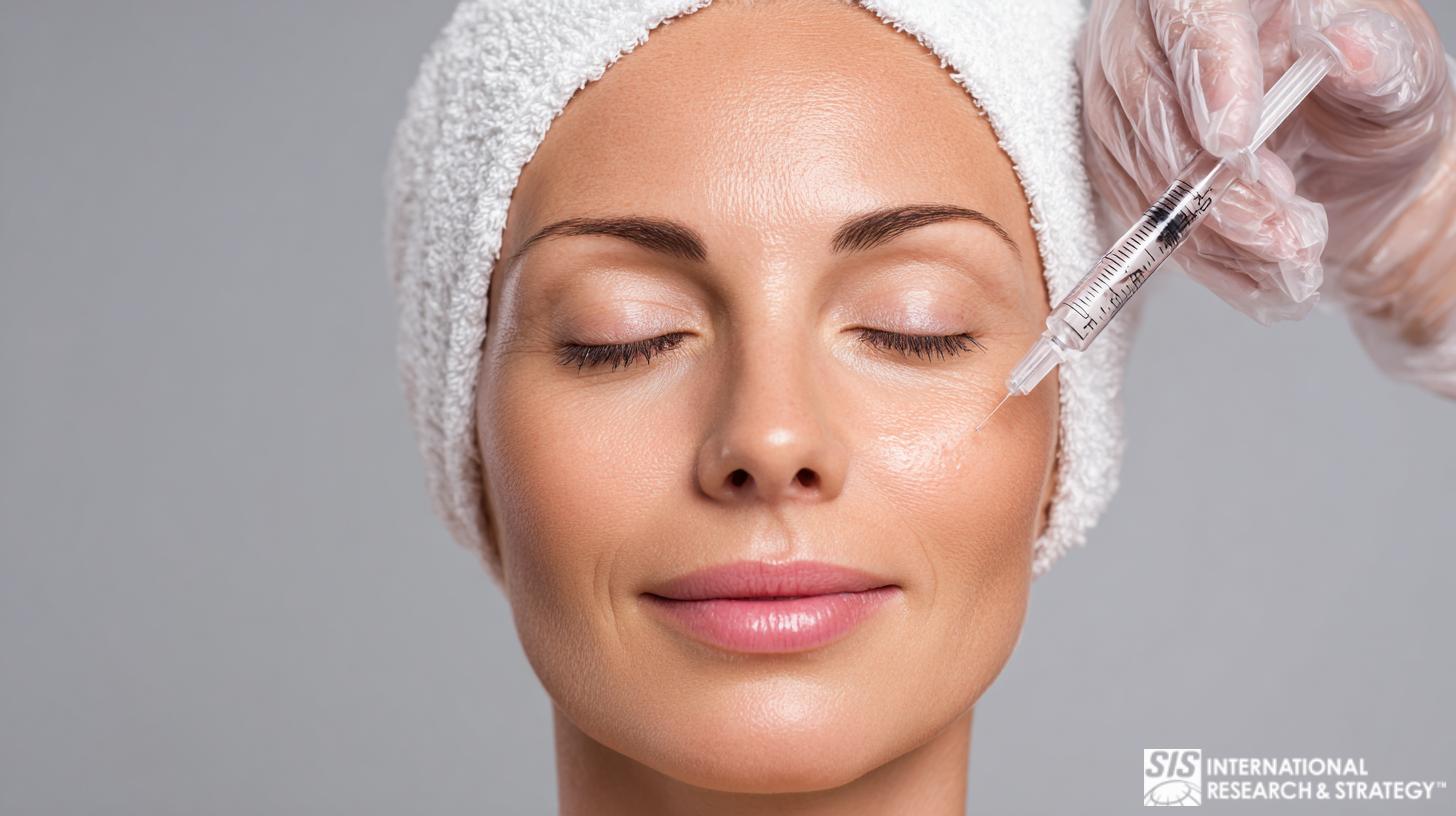Beauty Market Research in the UK
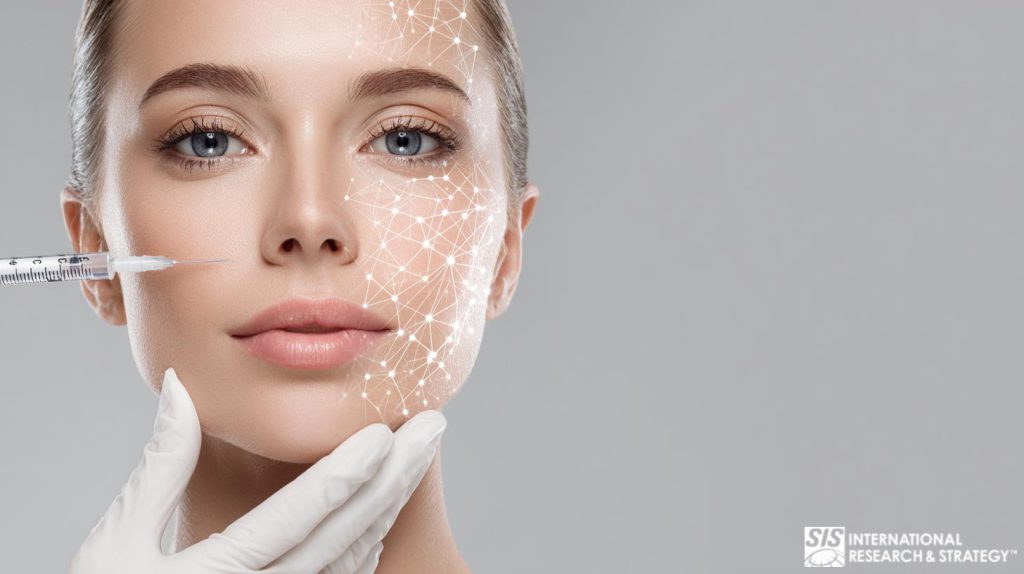
That £46 moisturizer sitting on your bathroom shelf? It wasn’t just developed in a lab. It was psychologically engineered to exploit peculiarities of the British beauty psyche that most consumers never notice.
Actually, most shoppers see pretty packaging. Industry insiders see the 14 neurological studies that determined which precise shade of teal triggers 31% higher purchase intent among London professionals aged 32-41.
Shocking, isn’t it?
Table of Contents
✅ Listen to this PODCAST EPISODE here:
What Is Beauty Market Research in the UK?
Beauty market research in the UK operates in an entirely different dimension. While car manufacturers study practical needs, beauty researchers dissect your deepest vulnerabilities and emotional triggers – the psychological buttons so effective you don’t even realize when they’re being pushed.
The real magic happens at the collision point between cold, hard purchasing data and the chaotic emotional storm driving those behaviors. Most beauty executives are drowning in meaningless metrics while starving for actual insights.
Why Is Beauty Market Research in the UK Important?
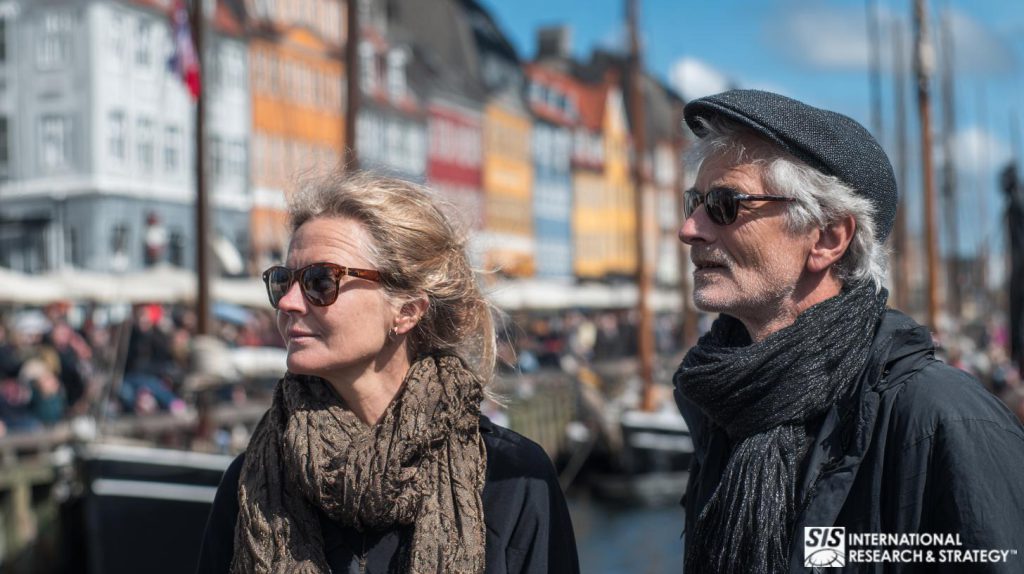
For executives navigating the UK beauty landscape, quality research delivers four game-changing advantages your competitors will never admit exist:
Decision insurance – With development costs for a single new beauty product regularly exceeding £1-2 million, sophisticated beauty 시장 조사 in the UK is a mistake insurance.
경쟁 정보 – Beauty market research in the UK delivers crucial intelligence impossible to obtain through any other means. Understanding not just competitor positioning but the emotional territory they occupy in consumer minds enables surgical precision in marketing strategy impossible through generic approaches.
Most marketing directors focus on what competitors say. Winners focus on what competitors don’t say.
Trend anticipation – The holy grail of beauty market research in the UK has always been accurate trend prediction – anticipating consumer needs before competitors recognize they exist.
Consumer connection – In a category where perception routinely trumps reality, beauty market research in the UK doesn’t just inform product development – it fundamentally shapes how consumers experience those products at a neurological level.
The most successful beauty brands aren’t selling ingredients; they’re selling psychological transformation disguised as tubes and bottles – and beauty market research in the UK reveals exactly which transformations specific consumer segments crave most desperately.
The Unique British Beauty Landscape
Britain isn’t one beauty market. It’s eleven regional micro-markets requiring completely different approaches.
Beauty market research in the UK exposes bizarre psychological quirks separating British consumers from continental Europeans in ways that continue bewildering international brands.
Consider this mind-bender: while French consumers demonstrate fierce brand loyalty, UK beauty shoppers show 37% higher propensity to brand-switch based on new product curiosity. Beauty market research in the UK confirms this contradicts global patterns, with British consumers simultaneously more tradition-loving in cultural attitudes yet more experimental in beauty purchasing than any other European market.
The regulatory environment creates another uniquely British contradiction. Following Brexit, the UK established its own regulatory framework different from EU standards, creating a peculiar hybrid market where consumers demonstrate European sensibilities with American-style regulatory expectations.
Most brands completely misunderstand British distribution dynamics. The UK presents Europe’s most concentrated retail landscape, with just three retailers (Boots, Superdrug, and department stores) controlling 64% of beauty distribution. Beauty market research in the UK confirms this concentration creates distribution bottlenecks that strangle innovative brands unable to secure prime shelf position—a dynamic exacerbated by the relatively slow penetration of specialty beauty retail compared to other mature markets.
The British Consumer: Psychological Triggers That Drive Beauty Purchases
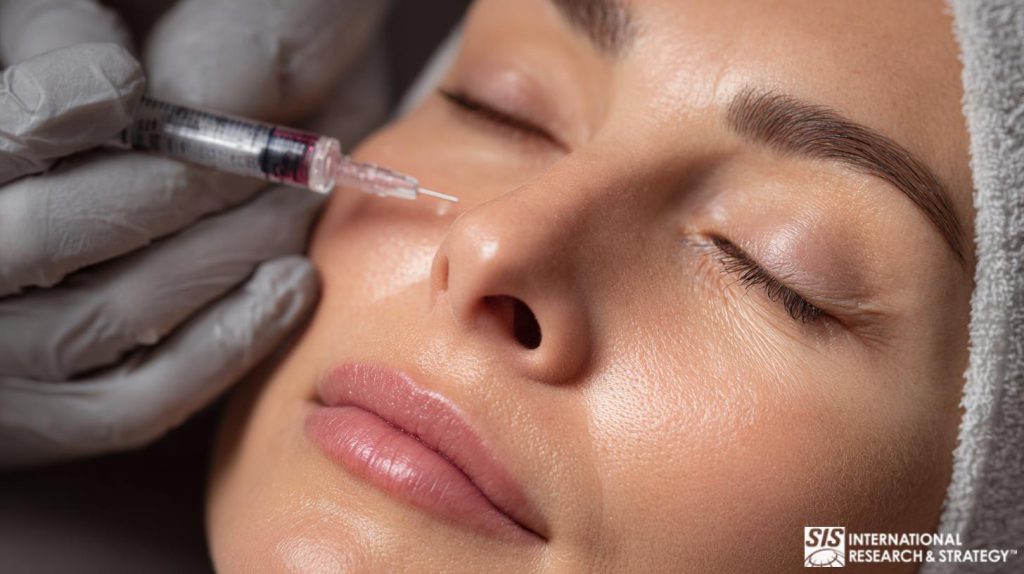
Demographics explain 15% of beauty purchasing in the UK. Psychographics expose the other 85%… Yet most brands remain fixated on the 15%.
Beauty market research in the UK reveals a consumer landscape fragmented beyond recognition. The generational chasms aren’t just wide—they’re almost unbridgeable. Gen Z beauty consumers in the UK obsessively consult an average of 7.1 information sources before purchasing—compared to a mere 1.9 for Boomers. Beauty market research in the UK confirms that 71% of under-25 consumers discover products through social platforms, with TikTok now driving more beauty purchase decisions than all traditional marketing combined—a pattern that sent shockwaves through UK beauty boardrooms.
Seven seconds.
That’s all it takes for Gen Z to categorize your beauty brand as authentic or performative. Their authenticity detectors function at supernatural levels that most marketing executives can’t comprehend.
Trust in beauty claims? Collapsed entirely. Beauty market research in the UK reports that 76% of British consumers actively distrust claims made by major beauty brands—yet continue purchasing from companies they don’t believe. This cognitive dissonance creates bizarre purchasing patterns where consumers simultaneously distrust marketing while being influenced by it—a psychological contradiction unique to beauty among major consumer categories.
Competitive Landscape: The UK Beauty Battlefield Mapped
The UK beauty arena is a Darwinian bloodbath where only the paranoid survive.
Beauty market research in the UK exposes a fragmentation pattern defying consolidation logic governing other consumer categories.
What happened? What cataclysmic force demolished decades of market dominance?
Beauty market research in the UK documents two simultaneous disruptions that established players completely misread until too late: the indie brand revolution and British retailers’ private label evolution.
Over 780 indie beauty brands erupted into existence in the British market during the past decade. Beauty market research in the UK confirms these indie brands benefit from digital-first approaches enabling them to bypass traditional media gatekeepers that historically protected established players.
The retail concentration that once protected established players now threatens them. With just three retailers controlling 64% of distribution, beauty market research in the UK confirms that losing shelf space in even one key retailer can trigger catastrophic market share collapse. This distributor power dynamic creates vulnerability for brands unable to maintain strong retailer relationships—a challenge particularly acute for international brands without dedicated UK teams.
Research Methodologies That Deliver Results in the British Market
Most brands make a catastrophic mistake: investing in isolated research methodologies that answer the wrong questions beautifully.
그만큼 consumer panel revolution represents another methodological breakthrough most firms haven’t embraced in Britain. Beauty market research in the UK increasingly relies on proprietary consumer communities rather than anonymous one-off research participants, creating longitudinal insight platforms that track changing preferences over time rather than capturing isolated moments.
The most sophisticated approach separating beauty winners from losers in Britain? Sequential deployment allowing each methodology to inform subsequent research phases—creating cumulative intelligence impossible through parallel implementation.
Leading beauty market research in the UK now incorporates eye-tracking (mapping precise attention patterns), facial coding (quantifying emotional responses through microexpressions), and galvanic skin response monitoring (measuring subconscious arousal) to reveal reactions to products, packaging, and marketing that consumers themselves cannot express verbally.
Opportunities in the UK Beauty Market Research
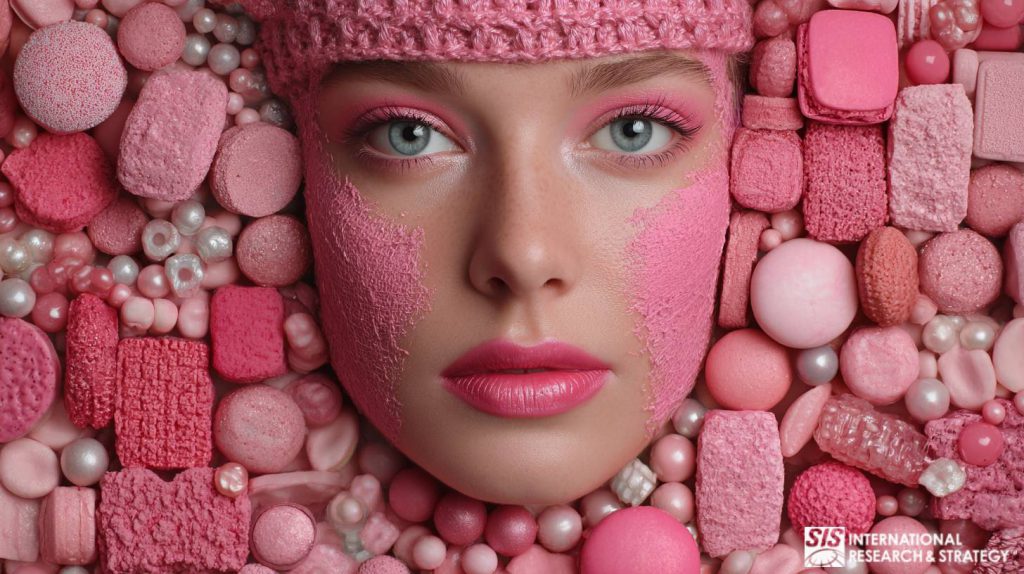
The most criminally overlooked opportunity? Trust reconstruction.
Beauty market research in the UK consistently exposes the gaping credibility canyon between marketing claims and actual product performance. Consumer skepticism has reached unprecedented levels, with most purchasers assuming brands are lying by default.
Meanwhile, the “personalization” delusion is killing companies by the dozens.
While every beauty executive claims to personalize, beauty market research in the UK reveals the embarrassing reality: consumers find most “personalized” experiences laughably generic. The tiny handful of brands actually winning in this space utilize sophisticated research revealing the specific customization dimensions 영국 consumers genuinely value versus the worthless ones marketers waste millions implementing.
Most brands think their personalization efforts are sophisticated. Their customers think they’re a joke.
Challenges in the UK Beauty Market Research
Success barriers in British beauty research aren’t just high. They’re multiplying faster than brands can scale them, creating methodological quicksand that swallows research budgets without delivering actionable intelligence.
The most critical challenge nobody discusses honestly? Sample integrity collapse due to professional survey takers who’ve learned to game research systems for financial gain.
The digital fragmentation of consumer attention creates another methodological nightmare most research firms haven’t solved. Beauty market research in the UK must now monitor over 11 separate platforms where beauty conversations occur, with TikTok, Instagram, YouTube, Reddit, and specialized beauty communities each housing distinct demographic segments with different preference patterns that can’t be aggregated without losing critical nuance.
Regional and demographic representation challenges plague UK beauty research. Beauty market research in the UK must balance London’s outsized influence with the need to understand diverse regional preferences. Research overindexing on London creates dangerous blind spots regarding regional dynamics that determine national success, yet research failing to capture London’s trend-setting influence misses critical early signals.
Most alarming? The widening research skills gap driving talent scarcity. Beauty market research in the UK increasingly requires hybridized talent combining traditional market research expertise with data science capabilities and psychological training—a combination exceedingly rare in the marketplace. This specialized talent shortage creates capacity constraints limiting research sophistication precisely when increased complexity demands it most.
Future of Beauty Market Research in the UK
Most current methodologies won’t survive.
Passive data collection will completely replace active questioning within five years. Next-generation beauty market research in the UK will abandon unreliable survey responses in favor of permission-based monitoring of actual product usage through connected packaging and smart mirrors that automatically record which products consumers use, in what sequence, and with what frequency—creating behavioral intelligence that eliminates claimed-behavior inaccuracies that plague current methodologies.
Biometric and neurological testing will obliterate subjective self-reporting. Beauty market research in the UK increasingly incorporates facial coding, eye-tracking, and electroencephalogram (EEG) measurement to identify subconscious reactions to products and marketing that consumers themselves cannot articulate. These technologies will migrate from premium applications to mainstream research as costs plummet through miniaturization and artificial intelligence integration.
AI will increasingly design, execute, analyze, and implement research without human intervention except for strategic oversight. Beauty market research in the UK already demonstrates AI-driven research achieving 31% higher predictive accuracy than human-designed studies, with machine learning algorithms identifying subtle correlations and causation patterns invisible to human analysts regardless of experience level.
Key Insights Summary
✅ British beauty psychology creates unique market dynamics, with consumers demonstrating 37% higher willingness to brand-switch compared to continental European counterparts
✅ Digital transformation has completely revolutionized beauty market research in the UK, with social listening, virtual testing, and AI-driven analytics creating predictive capabilities that traditional methodologies can’t approach
✅ Retailers’ private labels have evolved from budget alternatives into legitimate premium contenders, capturing 17% of the premium beauty market
✅ Five distinct psychographic segments now dominate British beauty consumption, each driven by fundamentally different emotional triggers
✅ The science-driven beauty revolution, self-care narrative, subscription models, and personalization represent the most significant emerging trends reshaping the British beauty landscape
✅ Next-generation beauty market research in the UK will leverage passive data collection through connected packaging and smart devices, creating behavioral intelligence that eliminates claimed-behavior inaccuracies
✅ Integrated research methodologies combining quantitative surveys, qualitative deep-dives, competitive intelligence, and digital behavior analysis deliver 38% higher predictive accuracy than isolated approaches
What Makes SIS International a Top Beauty Market Research Provider in the UK?
Most research firms deliver PowerPoint decks. SIS 국제 delivers transformational intelligence that reconstructs how brands compete in Britain’s beauty thunderdome.
- CUSTOMIZED APPROACH: Cookie-cutter methodologies produce cookie-cutter insights that lead nowhere except market irrelevance. SIS architects bespoke research specifically for UK beauty market challenges—fusing quantitative precision with psychological exploration that exposes the unconscious drivers behind British purchase decisions.
- PROPRIETARY UK CONSUMER DATABASES: Recruiting British beauty consumers with specific psychographic and behavioral profiles isn’t just challenging—it’s virtually impossible for generalist firms. SIS maintains proprietary UK consumer panels giving instant access to thousands of beauty enthusiasts across eleven distinct consumer segments covering every demographic segment, psychographic profile, and purchase behaviour pattern.
- ACCELERATED RESEARCH TIMELINES: While traditional firms debate methodology, SIS is already delivering actionable insights that create immediate competitive advantage in Britain’s breakneck beauty marketplace. Research timelines from most providers? Hopelessly outdated relics from an era when product development cycles spanned years instead of months.
- COST-EFFECTIVE INTELLIGENCE: SIS operational efficiency enables sophisticated beauty market research in the UK without the bloated pricing most specialized firms demand for methodologies that underdeliver.
- MULTI-REGIONAL UK MARKET COVERAGE: Beauty trends vary dramatically across British regions, rendering national averages dangerously misleading. SIS research capabilities span all eleven distinct 영국 geographical markets, uncovering emerging patterns, preference shifts, and competitive threats across diverse British consumer segments simultaneously.
- 영국 beauty CATEGORY EXPERTISE: General consumer researchers consistently miss category-specific nuances that determine success or catastrophic failure in the British beauty market. SIS fields specialized analysts focused exclusively on UK beauty and personal care—professionals who understand the technical, emotional, aspirational, and sensory dimensions unique to this category.
FAQs: Beauty Market Research in the UK
What methodologies deliver the most valuable insights for British beauty brands?
The highest-value beauty market research in the UK fuses multiple approaches into coordinated intelligence ecosystems working in concert rather than isolation: quantitative surveys establish behavioral baselines across statistically significant British consumer panels; qualitative deep-dives through ethnographic immersion expose emotional triggers invisible to surveys; retail audit data tracks real-world performance without self-reporting bias; social listening identifies emerging sentiment shifts weeks before they impact sales data; and competitive intelligence maps strategic positioning across increasingly fragmented battlefields.
How critical is sustainability in driving UK beauty purchase decisions?
Environmental consciousness has transcended trend status to become purchase prerequisite in Britain—but with fascinating psychological contradictions that most brands completely misunderstand.
Beauty market research in the UK demonstrates that most British consumers claim environmental concerns strongly influence their purchase decisions, but reaction varies dramatically by product category in ways that defy simplistic sustainability strategies. Color cosmetics consumers demonstrate relatively low sustainability sensitivity, while skincare consumers show dramatically higher concern.
How is e-commerce transforming beauty research methodologies in Britain?
Beauty market research in the UK methodologies have undergone radical evolution with e-commerce growth. Digital path-to-purchase tracking now captures every microscopic consumer interaction from initial discovery to final conversion, revealing that the average online beauty purchase in Britain involves a staggering 7.8 distinct touchpoints across 3.6 platforms before transaction completion. This granular visibility enables attribution modeling completely impossible in traditional retail environments where purchase journeys remain largely invisible between first store entry and cash register completion.
How do multicultural factors influence beauty market research in the UK?
According to industry intelligence, brands capturing the highest growth among multicultural consumers employ research methodologies focused on attitudinal characteristics and emotional needs rather than simplistic ethnic targeting—acknowledging the sophisticated identity complexities of modern British consumers who resent being reduced to census categories.
뉴욕에 있는 우리 시설 위치
11 E 22nd Street, Floor 2, New York, NY 10010 전화: +1(212) 505-6805
SIS 인터내셔널 소개
SIS 국제 offers Quantitative, Qualitative, and Strategy Research. We provide data, tools, strategies, reports, and insights for decision-making. We also conduct interviews, surveys, 포커스 그룹, and other Market Research methods and approaches. 문의하기 다음 시장 조사 프로젝트를 위해.

